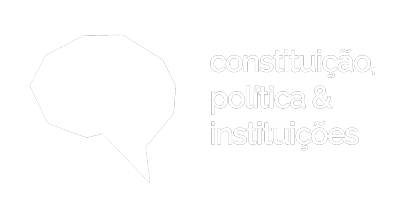Provides an overview of advanced quantitative methods that are widely used by researchers in educational and social science settings. Offers students an opportunity to understand and use more sophisticated statistical techniques to formulate and test relevant research hypotheses; conduct rigorous data analysis; interpret results; report and present research findings; and evaluate existing quantitative research. Topics covered include: logistic regression, factor analysis, and structural equation modeling.
Course Category: Courses
This is Courses taxonomy (category) description and can be used for whatever purpose one can find suitable. In addition to category description, you can upload featured image. It’ll show up in page header.
Course ID: br19BID81
Basics in Applied Quantitative Anlaysis
Introduces master’s students to quantitative data analysis. Prepares students to use the PASW/SPSS statistical software program and conduct basic descriptive and inferential statistical analyses. Students learn how to apply statistical techniques to address research questions using real datasets and how to interpret and present findings.
Course ID: TR17-B12prd
Field Experiences in American Higher Education
Provides international students an opportunity to meet and discuss various topics and ideas originating in students’ coursework. Offers support and clarity to the first-year experience of international students. Extends and elaborates on topics covered in EDU 414, and visits to local schools, other Warner classes, and local sociocultural settings are offered to elucidate the American institutions studied by Warner students. This is an optional extension offered to EDU 414 participants.
Course ID: FOPE-4479-17
Foundations of Health Professions Education
A foundational study of the historical, scientific, social, and political roots of health professions education, educational theory, and the continuum of this education. Provides the contextual framework for education in the health professions and emphasizes the historical and sociological theory of the evolution of this education. Critically examines the roles and responsibilities in the assessment and certification of graduates, as well as discusses the framework for accreditation and licensing of health care professionals. Current program assessment methods and tools are reviewed, as well as ethics and responsibilities of education leaders in different roles.
Course ID: I34IE-12-97
Independent Study in Education
This option is the one most commonly used by students who are interested in studying a particular topic through independent readings and other activities. The specific nature of the study and criteria for evaluation need to be articulated in writing within the first two weeks of the semester by using a specific Independent Study Form that requires the signature of the faculty member supervising the study, as well as the program chair and associate dean of graduate studies.
Course ID: OMMS-29-11-34
Optimization Methods in Management Science
Duis ornare magna sit amet dui eleifend imperdiet. Aliquam at porta elit. Proin lorem lacus, tempus id diam sit amet, porttitor tempor lectus. Praesent id felis sagittis, suscipit ligula sed, condimentum nisi. In non commodo risus. Praesent fringilla ligula in orci consectetur pulvinar. Nunc facilisis metus pellentesque, vestibulum libero eget, varius elit. Aliquam sed gravida dui, a imperdiet eros. Cras dignissim libero id feugiat pharetra. Nullam ut bibendum est, sed tincidunt massa.
Aenean eu sem non diam iaculis gravida. Nam imperdiet eleifend erat ut viverra. Fusce vitae ultrices tortor, tincidunt consectetur purus. Donec ut suscipit nisi. Ut vitae venenatis dolor. Phasellus volutpat sapien sit amet tellus gravida, nec dignissim elit congue. Lorem ipsum dolor sit amet, consectetur adipiscing elit. Vivamus leo magna, condimentum vitae feugiat id, lobortis et nibh.
Course ID: PWC2016-FALL
Professional Writing and Communications
Explores a range of writing practices and types of texts to engage candidates in persuasive writing that is aimed at reaching teachers, parents, administrators, and faculty. Examines ways to identify audience, purpose, and styles of writing and speaking used in specific contexts and settings, including schools, organizations, and academic courses. Candidates bring real-world experiences to the course and have assignments to produce particular genres of text.
Course ID: SRHC-2017-19-666
Spirituality, Religion, and Healing in Counseling
Introduces students to the practice of integrating religion, spirituality and healing into the humanistic counseling/therapeutic relationship. Surveys the current issues pertaining to the assessment and treatment of clients incorporating religious and spiritual constructs, including the various religious worldviews, an understanding of the psychological development of religious and spiritual perspectives, the treatment of religious and spiritual dysfunction, the incorporation of religious and spiritual assets, the spiritual and healing aspects of the body and mind connection, the connection of spirituality with the creative process, and a review of the clinical research in this particular aspect of the counseling field.
